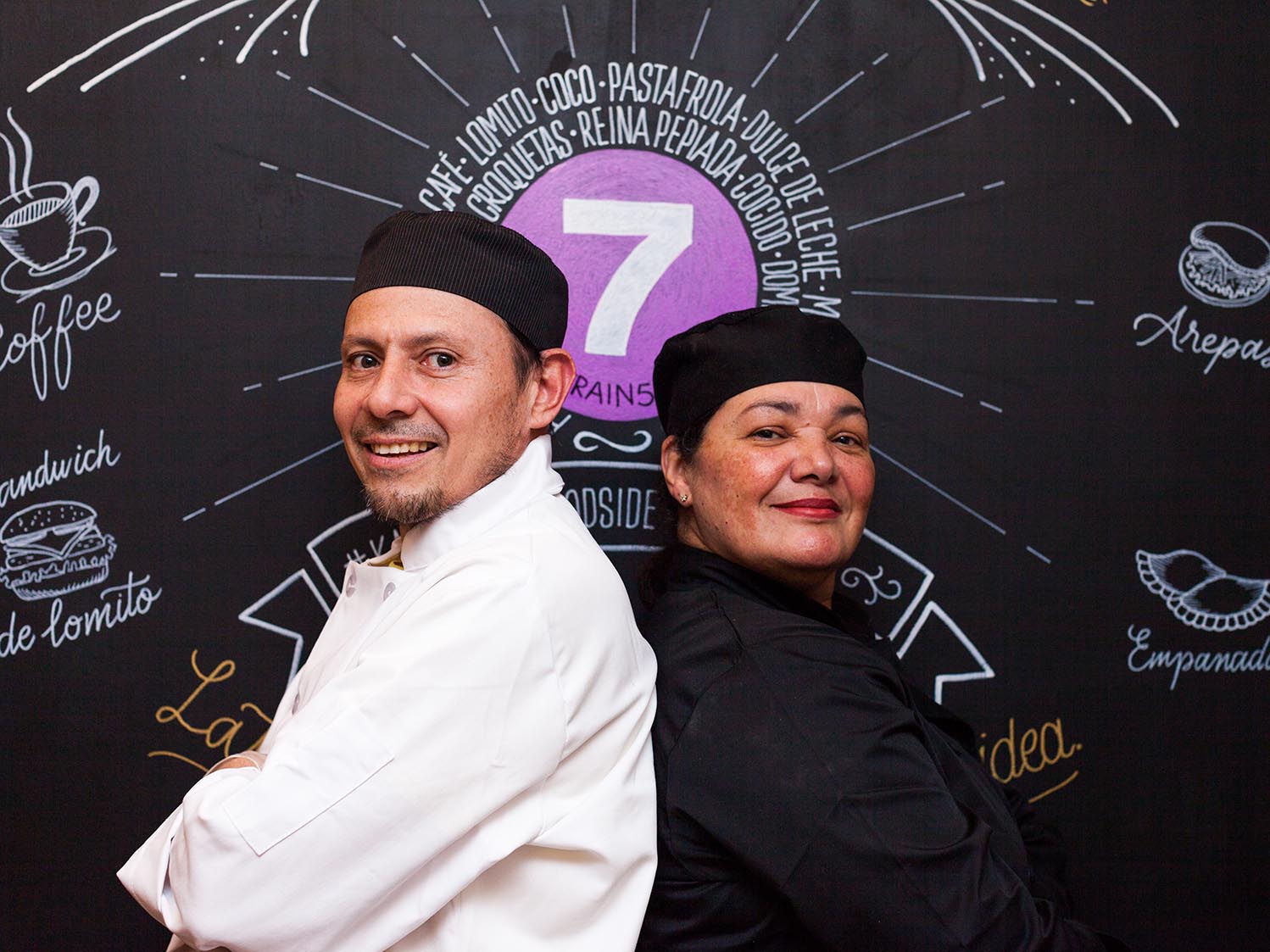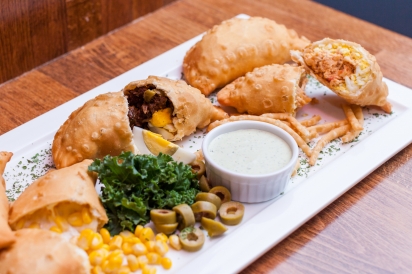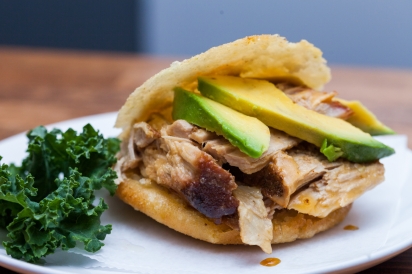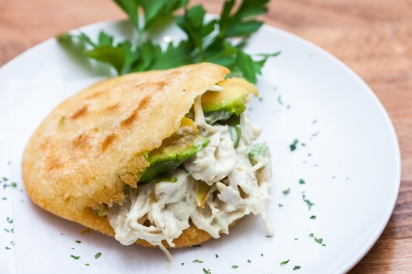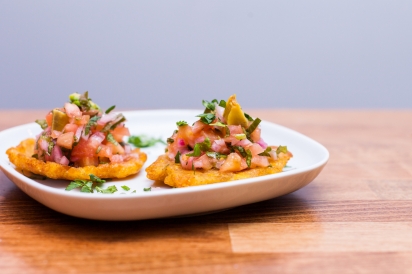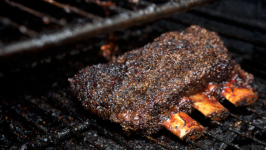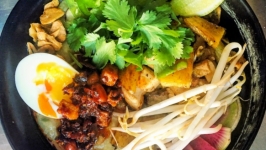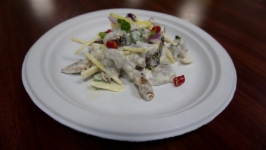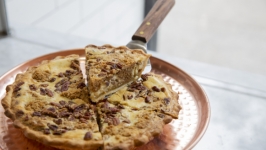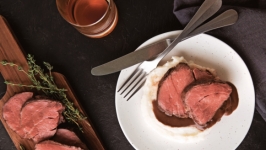Zuny Llano and Augusto Acevedo of Karu Cafe
Zuny Llano and her husband, Augusto Acevedo, had always talked about opening a café. “A small spot where we could sell coffee and empanadas and maybe arepas,” Llano said of the abstract fantasy the Long Island City–based couple shared.
So when a space opened up in the Falchi Building’s food hall in 2014, they didn’t hesitate, creating a pop-up café concept in less than a week. “Without thinking too much, we jumped,” Llano said. “It was a dream, and then a coincidence.” They decided to name their business Karu, which translates to “eat” in Guaraní, the language indigenous to Llano’s native Paraguay and what Acevedo grew up speaking in Venezuela.
Almost two years after opening the original Karu, the family business expanded to Woodside in October 2016. Fears about opening under the noisy 7 train in a changing neighborhood were quelled immediately by a welcoming, eager crowd of customers. “We love the neighborhood. The people turn up for us,” Llano said. “We are grateful and happy to see that people like what we are introducing to the neighborhood.”
The fusion of the two families’ heritages is an important one, especially in the current political climate. Perhaps a bite of an unfamiliar food can ignite curiosity, or awareness about cultures different from one’s own.
As NY1 Noticias played on the television over the espresso machine, barely drowning out the noise of two young girls in princess attire wrapping up a tea party with their chaperones, the couple reiterated their confidence in New Yorkers to stand up for immigrants and support diversity.
Several Paraguayan-Venezuelan couples have visited Karu, but beyond seeking out the familiar, Llano said the mixed menu is a vehicle for customers of all backgrounds to try something new: Empanada enthusiasts may bite into their first arepa here, bursting with a proprietary blend of cheeses and perhaps some tender strings of beef, or those looking for a quick coffee by the train may be lured into their first bites of croquetas and tostones.
Larger plates, like the traditional Venezuelan pabellon criollo (a platter served steaming with white rice, black beans, slick plantains and braised beef) and sides like chipa guazu, a Paraguayan sweet corn cake, also offer a unique pairing of the two countries’ dishes. Sipping it all down with imported Guarana soda is highly recommended.
While Llano still works as an architect full-time (and yes, she designed Karu’s interior, which is modestly arranged with wooden tables and matching chairs, golden light fixtures hanging off corresponding wooden panels for a hint of hipness), her husband runs the cafés. Llano’s brother, Abel, cooks the Paraguayan half of the menu and Acevedo’s sister, Lucy tends to the Venezuelan dishes. And Acevedo’s 84-year-old mother, Saida, arranges the tabletop flowers—red, lavender and yellow daisies stuffed in a short jar with baby’s breath added some subtle brightness to the dark brown tabletops on a chilly February day.
“It’s not impossible—you can prove people wrong and really have a family business,” Acevedo said of his growing enterprise, which almost exclusively employs relatives. Beyond keeping their family close and busy, Acevedo hopes his new neighborhood retreat can give back to the community. In the near future, he hopes to host fundraisers and medicine drives to send supplies to Paraguay, and to Venezuela, where he can no longer visit due to safety concerns.
As the café still gains its footing in Queens, you’ll find Acevedo and Llano pulling shots of espresso or doling out pastries, chatting with their extended family and the ever-steady flow of customers at the breakfast, lunch and dinner hangout—and laughing—a lot. This is their dream, and it’s all happening under the rowdy rumble of the 7 train.


